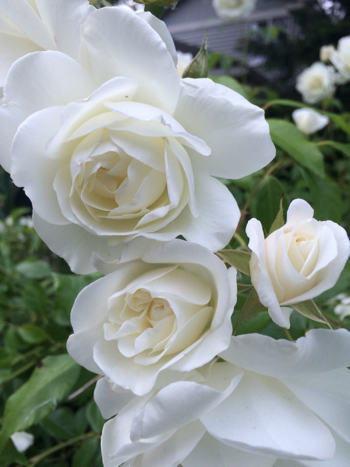Power, Mastery, & Acceptance

I used to fear that if I developed and allowed my full vitality to be present in my body that I would get too fiery and have trouble managing my energy. I’ve needed restraint lest I speak out too suddenly, too forcefully, or at the wrong moments and cause unwanted consequences. Now I have more discipline, more skill handling various situations, a greater need for vitality, and more kindness toward myself and others.
Fear of one’s vitality is a fairly common underlying element of chronic illness. Sometimes, to get well, it is necessary to find and face that fear.
One way I’ve worked with mine has been by invoking a certain divine name that helps one keep from expressing the kind of power that surges up inside oneself but is better left unexpressed. Resonating with that frequency makes it easier to remain clear and unruffled, and helps confer immunity to external energies.
The root word of that Name has to do with clearing out the house. Invoking this energetic helps release everything that does not belong with us, to be open, and to favor internal emptiness. This positive emptiness keeps other people’s energy from sticking to us. That energy passes through our transparency as we have no attachment to it. The same practice is also used to help relax fear of death.
Over-riding the impulse to act is different than surrendering the impulse. Surrender allows everything, accepting it without trying to alter anything. Saints surrender. Those developing mastery—for these are different paths—intentionally alter conditions and circumstances.
Mastery aligns with guidance and creates influence through intention and developed will. Surrender releases the need to change things and lets the  energy go.
energy go.
Mastering an impulse still retains the energy, which can be reassigned to more optimal aims, or simply relaxed into one’s general vitality if we are empty of motive.
Choosing NOT to act requires the ability to release personal will without releasing higher will. This means you do not act accidentally, automatically, or from personal desire. We will act intentionally, if guided inwardly to do so. Choosing not to act is more often powerful than action unaligned with guidance.
Choosing not to act can also express healthy self love. Well-timed, aligned action spares us discomfort and inconvenience set in motion by ill considered action. This choice is not the same as suppression or hesitation. One pauses, checks in, garners resources, and then acts with good timing if the object of the goal is of benefit.
How do we balance acceptance and non-action with applying intention and optimizing our choices within circumstances and conditions?
While our life paths and personal natures probably favor the path of the saint or the path of mastery, we can all work with whichever mode best serves our spiritual needs at any given moment.
People often say we can only change ourselves and our reactions to things. This direction of thinking is useful, however, I believe it is incomplete. The difference we make in the world is partially predicated by our degree of self mastery and our energetics. These do create influence, which if accepted by others, leads to change. Our ability to engineer creative change is enhanced by positive energy, and diminished by resisting what is actually going on.
Our interface with the world as also enhanced by positive surrender; acceptance—not giving in.
Mastery and acceptance feed one another. Acceptance frees up our energy and resources to respond with creativity and intelligence, giving us more mastery within conditions and circumstances. Mastery includes sensing when surrender is the wisest path.
Is your personality more suited to mastery or sainthood as a direction for Work on Self?
Are you more comfortable with one over the other?
If so, what arises for you when you consider developing the other mode?


 want, so we can co-operate in harmony. When we don’t communicate who we are we make it harder to have a mutual flow of love.
want, so we can co-operate in harmony. When we don’t communicate who we are we make it harder to have a mutual flow of love.
 When we feel like we want to die it’s usually because we are not taking good enough care of our bodies. The mammal needs love and nourishment.
When we feel like we want to die it’s usually because we are not taking good enough care of our bodies. The mammal needs love and nourishment.
 discontent, feel into it, we find ways to hold ourselves accountable for meaning in our lives. We find ways to inspire ourselves by discovering what matters to us truly, and feel our way, if blindly, into giving things that matter shape and form on our outsides, expression, perhaps even life direction.
discontent, feel into it, we find ways to hold ourselves accountable for meaning in our lives. We find ways to inspire ourselves by discovering what matters to us truly, and feel our way, if blindly, into giving things that matter shape and form on our outsides, expression, perhaps even life direction.












